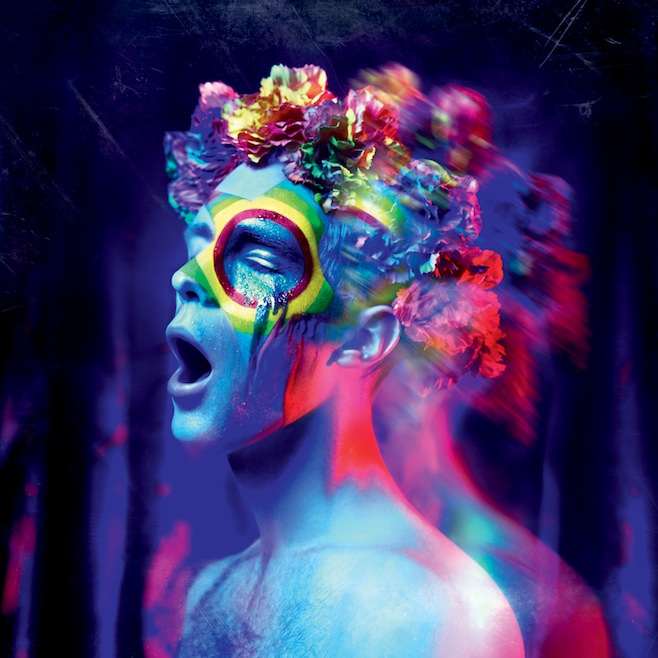
News
Summers Will Not Finish Semester of Teaching as Harvard Investigates Epstein Ties

News
Harvard College Students Report Favoring Divestment from Israel in HUA Survey

News
‘He Should Resign’: Harvard Undergrads Take Hard Line Against Summers Over Epstein Scandal

News
Harvard To Launch New Investigation Into Epstein’s Ties to Summers, Other University Affiliates

News
Harvard Students To Vote on Divestment From Israel in Inaugural HUA Election Survey
CEO Builds His Palace In “Wonderland”
CEO-Wonderland-Modular Records-4 STARS

For Eric Berglund, also known as CEO, vagueness is a virtue. The former Tough Alliance member writes lyrics that resemble poorly translated Imagist poems and picks samples seemingly at random: the one that starts his second solo release, “Wonderland,” is a quote from an Icelandic documentary about a falconer’s misguided search for Osama bin Laden. And in a written statement announcing “Wonderland,” Berglund closed with a puzzling, Big Ghostian send-off: “ceo is you and you are me and I am ceo aka white panther aka ultra messiah aka mr yeah aka eric aka life aka you.”
In the painfully obvious universe of electro-pop, however, the enigma of CEO is a welcome diversion. On “Wonderland,” Berglund cares less about meeting expectations than he does about eliminating them altogether. Like Lewis Carroll’s creation of the same name, the resulting landscape is simultaneously opulent and unsettling, both organic and artificial.
As on his previous release under the (then-uncapitalized) CEO moniker, 2010’s “White Magic,” Berglund makes heavy use of understated synth loops, inscrutable voice samples, and cluttered drum tracks on “Wonderland.” These elements come together superbly on the two immediately catchiest tracks on the album, the opening “Whorehouse” and the closing “OMG.” However, Berglund has considerably expanded his musical arsenal in the past four years. The crisp, tubular hook that runs throughout “Mirage” could have been pulled straight from a Lex Luger beat; the whirring, Rube Goldberg-esque rhythms of “Ultrakaos,” from Shugo Tokumaru or Battles. It’s the way in which Berglund manipulates and juxtaposes these disparate elements that elevates “Wonderland” above “White Magic.”
Some of Berglund’s miniature experiments on “Wonderland” don’t work—especially the floundering instrumentals “Juju” and “In A Bubble On A Stream,” which sound eerily like excerpts from a low-rent anime score. But most of them do, spectacularly. The opening of “OMG” interweaves grating vocal samples, a women’s chorus, and a syncopated harp loop[,] to spectacular effect. The combination is maddeningly fleeting, only persisting for about twenty seconds before breaking off. Nothing lasts on “Wonderland,” for better or for worse.
For all of its opulence, “Wonderland” feels, at its heart, strangely and profoundly sad. It might be the contrast between Berglund’s simplistic, childlike melodies and his industrial-scale backing tracks that does the trick, recalling the lavish alienation of modern classics like “Kaputt” and “Hissing Fauna, Are You The Destroyer?” Also unsettling are the random, disembodied voices that mutter throughout the album, lending the tracks a weird, schizophrenic vibe. Finally, Berglund’s dark subject matter certainly plays a role—the first two tracks are titled “Whorehouse” and “Harakiri,” after all. Whatever the reason, the melancholy feel of “Wonderland” marks a noticeable shift from Berglund’s earlier, emotionally detached work in The Tough Alliance and on “White Magic.”
Back in December, CEO released a wonderful cover of Kanye West’s “Hold My Liquor.” Berglund’s choice of song, it turns out, was a kind of clue to the nature of “Wonderland.” All the phrases that describe “Hold My Liquor” in the context of “Yeezus”—achingly ornate, rapidly shifting, and thoroughly unsettling—also describe “Wonderland” in the context of Berglund’s career. There should be many more great CEO records to come, but for now, “Wonderland” is a rabbit-hole truly worth diving into.
—Staff writer Will Holub-Moorman can be reached at holubmoorman@thecrimson.com.
Want to keep up with breaking news? Subscribe to our email newsletter.
